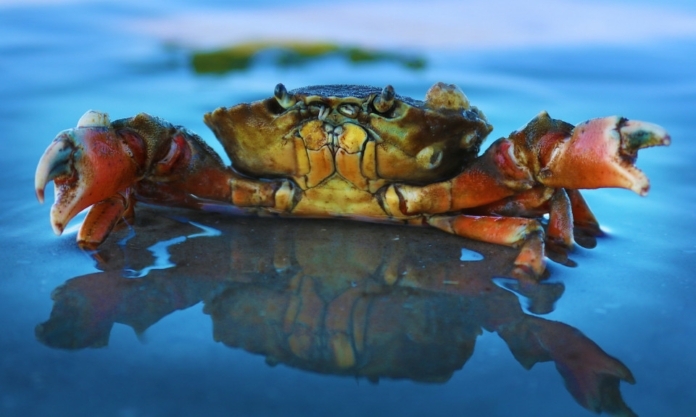Mid Autumn Festival is coming, and this year it’s early. And that’s compounding the problem that is hairy crabs vs heatwave. Turns out we won’t have enough of them, because they’ve already been literally roasted.
Falling this year on 10 September, Mid Autumn Festival would not be complete without a full moon and hairy crabs. At least, that’s in eastern China, where hairy crabs, known elsewhere as Chinese mitten crab (on account of their mitten-like pincers), are an autumn delicacy.
But in 2022, the heatwave is playing havoc with their hairs.
Hairy crabs are bred in many parts of eastern China, but our very own Jiangsu Province can be argued to be their ancestral, hairy home. In particular, the main breeding grounds for hairy crabs are located in Suzhou, Wuxi, Gaoyou (Yangzhou) and Xinghua (Taizhou).
These cities have of late all experienced temperatures in excess of 39 degrees Celsius. That’s led to water-surface temperatures of 35 degrees in the crabs’ breeding grounds. For them, that’s a sauna.
Zhu Yandin is a crab farmer at the Jiatian Hairy Crab Farm in Jiangyin City of Wuxi who has been engaged in crab breeding for decades. She told The Paper that this year’s season has been particularly difficult.
“In the process of hairy crab shelling this year, their mortality rate is much higher than that in previous years. Therefore, when hairy crabs come on the market in late September, high-quality crabs will definitely cost significantly more”, Zhu said.
The high temperatures increase evaporation rates in the lake waters that are the hairy crabs’ home. This can lead to their death due to serious hypoxia. The temperatures also bring about a proliferation of floating algae, affecting the growth of aquatic plants and disrupting the hairy crabs’ food chain.
But none of this has stopped attempts at cashing in. Reporters up north for the Beiqing Daily visited Sam’s Club, Carrefour and BHG supermarkets to find hairy crab coupons already sold out.
And so it seems that Nanjingers and many others looking for their crabs this year may be going hungry. Or at least, their wallets are going to feel a lot lighter.
While they may be a delicacy in this part of the world, crabs are not always welcome elsewhere. In the Western Hemisphere, the European Commission (EC) put the Chinese mitten crab on their list of “Invasive Alien Species of Union Concern” on 3 August, 2016. Under “Nature and Biodiversity”, the EC states, “Member States are required … ‘to take measures for the early detection and rapid eradication of these species’”.
The Nanjinger warns that crabs should only be cooked alive. Deceased crabs are infested with a toxin that is extremely dangerous if consumed, leading to what is known as “seafood poisoning” or “ciguatera poisoning”, derived from ciguatoxin, one of the most prevalent forms of aquatic food-borne contagion.









